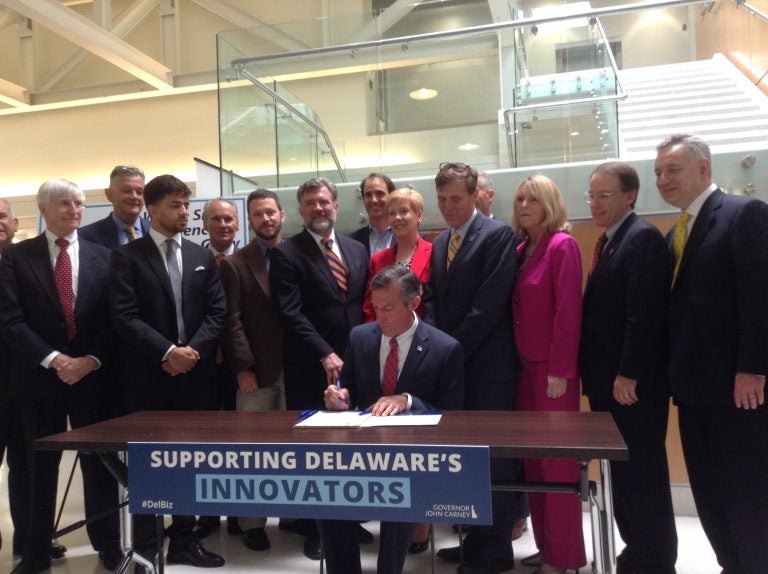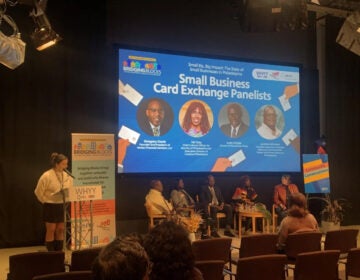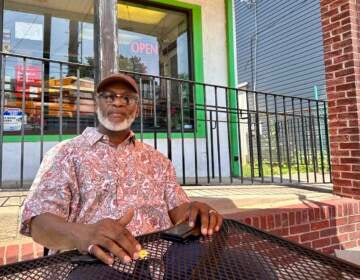Carney signs law aimed at incentivizing investors in Delaware businesses
Aiming to stimulate Delaware's tech economy, the Angel Investor Job Creation and Innovation Act is now law in Delaware.

Gov. John Carney signs legislation that aims to incentivize startup businesses in Delaware. (Zoe Read/WHYY)
Aiming to stimulate Delaware’s tech economy, the Angel Investor Job Creation and Innovation Act is now law in Delaware.
On Thursday, Gov. John Carney signed the legislation sponsored by state Rep. Michael Ramone, R-New Castle, and others, to create a refundable tax credit for qualified investors financing small science and tech businesses in Delaware.
“We need a lot of different tools, as opposed to focusing on large grants or financial incentives for one big company,” said Carney at the event at the University of Delaware’s STAR campus. “It means cultivating an environment where scientists and researchers can be successful.”
The tax credit is worth up to 25 percent of the investment, with a maximum annual credit of $250,000 to couples filing jointly and $125,000 to other investors. The total annual cap amount available to all investors or investor funds is set at $5 million.
Among other requirements, businesses receiving the investment must pay acceptable wages, have fewer than 25 employees and focus business on manufacturing, agriculture, environmental science or similar ventures.
“Delaware is smaller, we’re faster, we’re better, we have a geographic location that’s incomparable to anywhere, we’re between New York and Washington and Baltimore and Philadelphia,” Ramone said. “We have all the pieces that we don’t need to bribe companies to come to our state. What we need is to motivate people to build and start and set their seed in our state and let it grow.”
Helen Stimson, president and CEO of Delaware BioScience Association, said the measure will make it easier for entrepreneurs to get started.
“Bioscience companies — or anybody getting started in science — those companies require a lot of capital for research and development,” she said. “A lot of times what happens to companies is they get started with early investors’ initial seed capital, but they run out of funds before they can get funds from a larger venture capitalist.
“So I think this helps to fill the gap to get them though what’s called the ‘valley of death’ in funding.”
WHYY is your source for fact-based, in-depth journalism and information. As a nonprofit organization, we rely on financial support from readers like you. Please give today.





